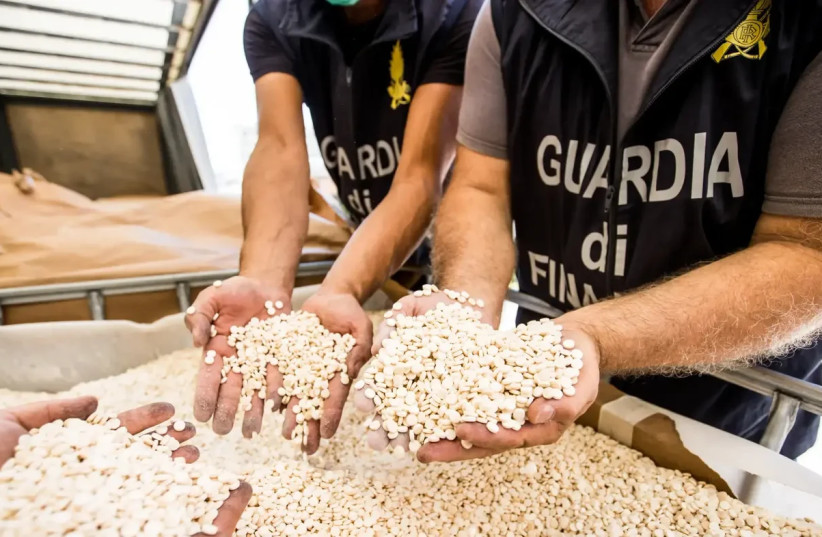Hamas terrorists who carried out the October 7 massacre were found to be under the influence of Captagon, a synthetic amphetamine-type stimulant that has been clandestinely produced in southern Europe and trafficked through Turkey to the consumer markets on the Arabian Peninsula, as reported by Nir Dvori of Channel 12.
The pills were recovered from the pockets of many terrorists who lost their lives on Israeli soil.
This stimulant drug, also known as the "cocaine for the poor," allowed the terrorists to commit heinous acts with a sense of calmness and indifference. Simultaneously, it kept them highly alert for extended periods and suppressed their appetite.
Captagon: Used by ISIS
Captagon gained notoriety in 2015 when it was discovered to be used by ISIS terrorists to suppress fear prior to carrying out terrorist operations. As the influence of terrorist organizations like ISIS diminished, Lebanon and Syria took the reins and began producing and distributing the drug on a large scale.
Gaza, in particular, became a popular market for the drug, especially among young addicts.
Captagon belongs to the amphetamine family and was initially developed to address attention disorders, narcolepsy, and depression. Despite its highly addictive nature and potential for inducing psychotic reactions, it continues to enjoy popularity in the Middle East due to how affordable it is and how easy it is to make. In poorer countries, the drug can be purchased for a dollar or two, while in wealthier nations, it may cost up to $20 per pill.
Its primary effects include arousing feelings of euphoria, reducing the need for sleep, suppressing appetite, and providing sustained energy.
According to medical professionals in Lebanon and Syria, Captagon is not only prevalent among terrorists but is also frequently used by desperate civilians residing in conflict zones.

Once a source of revenue for ISIS members through drug smuggling, Captagon has now become a major source of income for Syria and is actively supported by Hezbollah.
Around two years ago, an investigation conducted by The New York Times revealed that individuals associated with Syrian dictator Bashar Assad, including family members, had established a thriving industry for the production of Captagon.
This industry, which involve<strong>s the participation of Hezbollah, is overseen by Assad's brother and serves as a prosperous enterprise amidst the ruins of the ongoing civil war that has plagued Syria for over a decade.</strong>
The profits generated from the drug trade in Syria exceed those gained from legitimate exports.
Reliable estimates suggest that Captagon's exports from Syria alone reached a minimum of $3.5 billion in 2020 – a figure five times greater than the combined value of Syria's legal export industries, estimated at just over $700 million.
Experts offering their assessments believe that these projections are speculative and that the actual market value is likely much higher. For example, in Saudi Arabia, it is estimated that consumption of Captagon surpasses 600 million pills annually, generating a market value of at least $9 billion to $12 billion dollars every year.
The drug's reach extends beyond Saudi Arabia, with significant seizures of Captagon reported in Italy, Greece, Malaysia, and Egypt. In Jordan, it is readily available at low prices, making it increasingly popular among underprivileged youth, including those of school age. Without a doubt, the prevalence of Captagon continues to rise each year.
In December 2021, Kuwaiti authorities seized nine million Captagon pills hidden in a shipment of oranges. Just a week prior, Dubai authorities intercepted the smuggling of 1.5 tons of Captagon pills, worth approximately $380 million, concealed within a cargo of lemons.
Last year alone, more than 250 million Captagon pills were thwarted from being smuggled, representing an 18-fold increase compared to four years ago. These figures only account for the shipments that were seized, leaving room to speculate that the actual smuggling quantities are much higher. Reports have previously suggested that the drug has also made its way onto the streets of Israel, where it is sold for around NIS 50 per pill.
